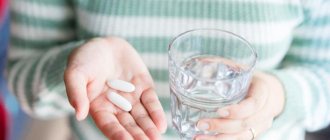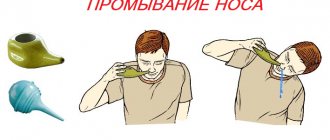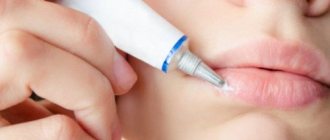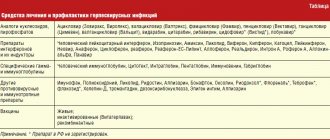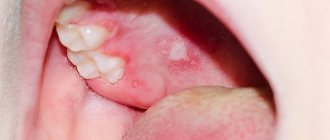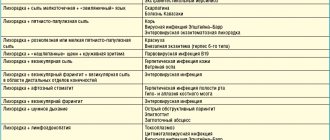Possible applications
These products are recommended by experts for the treatment of herbes, as they have the ability
- prevent the formation of new sites of infection;
- reduce the possibility of spreading infection through internal organs;
- speed up the healing of ulcers;
- reduce pain in the acute phases of the disease;
- stimulate the body's immune system.
The variety of forms of the drug containing acyclovir, which are offered by the pharmaceutical industry, makes it possible to use the drug both for local treatment and in a system with other formulations.
Dosage forms
Products containing the active substance are produced by the following companies:
- in tablets;
- in powders intended for the preparation of solutions used for intravenous drip administration of the drug;
- in a thick cream or ointment consistency.
The use of the product, regardless of the release form, does not impose any age restrictions and is generally recommended based on the indications in each individual case. However, the use of compositions used to prepare solutions for drip administration implies hospital treatment, as it requires compliance with certain precautions.
Drugs produced in the form of creams, ointments and tablets are recommended for outpatient treatment.
Recommendations for use
Indications for the use of formulations containing acyclovir are:
- eye diseases caused by herbes simplex virus;
- herbes of the red border of the lips and skin tissues;
- viral stomatitis of the oral cavity;
- genital herpes;
- hepatic encephalitis.
For successful treatment of the disease, experts recommend:
- 5 percent creams, effective for external use;
- 5 percent ointments;
- ophthalmic 3 percent formulations;
- tablet forms, dosed at 200 and 400 mg;
- powders, for solutions, doses from 200 mg to 1 g.
Acyclovir, tablets 200 mg, 20 pcs.
Manufacturer
Belmedpreparaty, Belarus
Compound
Active substance: acyclovir in terms of 100% substance - 200 mg and 400 mg; excipients: microcrystalline cellulose 21.46 mg or 42.92 mg, povidone 1.17 mg or 2.34 mg, magnesium stearate 2 mg or 4 mg, indigo carmine 0.1 mg or 0.2 mg, sodium carboxymethyl starch 12.5 mg or 25 mg, purified water 12.77 mg or 25.54 mg, respectively.
pharmachologic effect
Pharmaceutical group:
antiviral agent.
Pharmaceutical action:
The antiviral drug is a synthetic analogue of thymidine nucleoside.
In infected cells containing viral thymidine kinase, phosphorylation occurs and is converted to acyclovir monophosphate. Under the influence of acyclovir guanylate cyclase, monophosphate is converted into diphosphate and, under the action of several cellular enzymes, into triphosphate. High selectivity of action and low toxicity to humans are due to the absence of the necessary enzyme for the formation of acyclovir triphosphate in intact cells of the macroorganism.
Acyclovir triphosphate, “incorporating” into the DNA synthesized by the virus, blocks the reproduction of the virus. The specificity and very high selectivity of the action are also due to its predominant accumulation in cells affected by the herpes virus.
Highly active against Herpes simplex virus types 1 and 2; the virus that causes chickenpox and herpes zoster (Varicella zoster); Epstein-Barr virus (types of viruses are indicated in increasing order of the MIC value of acyclovir).
Moderately active against CMV.
In case of herpes, it prevents the formation of new rash elements, reduces the likelihood of skin dissemination and visceral complications, accelerates the formation of crusts, and reduces pain in the acute phase of herpes zoster. Has an immunostimulating effect.
Indications
Treatment and prevention of infections caused by Herpes simplex viruses types 1 and 2 and Varicella zoster:
- herpes simplex of the skin and mucous membranes (primary and recurrent);
- genital herpes (primary and recurrent);
- herpes zoster (shingles);
- chickenpox (in the first 24 hours after the appearance of a typical rash);
- in patients with severe immunodeficiency (including after transplantation, when taking immunosuppressive drugs, in HIV-infected patients, during chemotherapy).
Contraindications
Hypersensitivity to acyclovir, ganciclovir, valacyclovir or components of the drug, lactation period, children under 3 years of age. With caution Pregnancy, old age, dehydration, renal failure, neurological disorders or neurological reactions to cytotoxic drugs (including a history).
Side effects
From the digestive system: nausea, vomiting, diarrhea, abdominal pain; rarely - a reversible increase in bilirubin content and the activity of liver enzymes. From the hematopoietic system: very rarely - anemia, leukopenia, thrombocytopenia. From the urinary system: rarely - increased levels of urea and creatinine in the blood; very rarely - acute renal failure. From the central nervous system: headache, weakness, dizziness, increased fatigue, confusion, hallucinations, drowsiness, paresthesia, convulsions, decreased concentration, agitation. Allergic reactions: itching, rash, Lyell's syndrome, urticaria, erythema multiforme, incl. Stevens-Johnson syndrome, angioedema, anaphylaxis. Other: fever, lymphadenopathy, peripheral edema, blurred vision, myalgia, alopecia.
Interaction
When used simultaneously with probenecid, the average half-life of acyclovir increases and the clearance of acyclovir decreases.
When taken simultaneously with nephrotoxic drugs, the risk of developing renal dysfunction increases.
How to take, course of administration and dosage
Take orally, during or immediately after a meal, with a sufficient amount of water. The dosage regimen is set individually depending on the severity of the disease. For the treatment of infections of the skin and mucous membranes caused by the Herpes simplex virus types 1 and 2 Adults - 200 mg 5 times a day (every 4 hours while awake, excluding night sleep) for 5 days, for the treatment of genital herpes - 10 days , if necessary, the duration of treatment can be extended. As part of complex therapy for severe immunodeficiency, including with a full-blown clinical picture of HIV infection (including early clinical manifestations of HIV infection and the stage of AIDS), after bone marrow implantation, 400 mg is prescribed 5 times a day. To prevent relapses of infections caused by the Herpes simplex virus types 1 and 2 in patients with normal immune status: Adults - 200 mg 4 times a day every 6 hours, course duration from 6 to 12 months. For the prevention of infections caused by the Herpes simplex virus types 1 and 2 in patients with immunodeficiency: Adults: 200 mg 4 times a day every 6 hours, maximum dose: up to 400 mg 5 times a day, depending on the severity of the infection. When treating herpes zoster - 800 mg 5 times a day (every 4 hours while awake, excluding night sleep) for 7-10 days. For children over 3 years of age, the drug is prescribed in the same dose as for adults. Treatment of chickenpox: adults and children over 6 years old - 800 mg 4 times a day; children 3-6 years old - 400 mg 4 times a day. More accurately, the dose can be determined at the rate of 20 mg/kg. The course of treatment is 5 days. In patients with impaired renal function, dose adjustment and dosage regimen are necessary depending on the magnitude of creatinine clearance and the type of infection. For the treatment of infection caused by Herpes simplex, with creatinine clearance less than 10 ml/min, the daily dose of the drug should be reduced to 400 mg, divided into 2 doses (with intervals between them of at least 12 hours, i.e. 200 mg 2 times a day). day). In the treatment of infections caused by Varicella zoster, and in the maintenance therapy of patients with severe immunodeficiency - patients with a creatinine clearance of 10-25 ml/min are prescribed the drug 800 mg 3 times a day with an interval of 8 hours, with a creatinine clearance of less than 10 ml/min - 800 mg 2 times a day with an interval of 12 hours.
Overdose
Symptoms: agitation, coma, convulsions, lethargy.
Precipitation of acyclovir in the renal tubules is possible if its concentration exceeds the solubility in the renal tubules (2.5 mg/ml).
Treatment: symptomatic.
Special instructions
When taking the drug, kidney function should be monitored (blood urea and plasma creatinine levels). When using the drug, it is necessary to ensure the supply of a sufficient amount of fluid.
Long-term or repeated treatment with acyclovir in patients with reduced immunity can lead to the emergence of strains of viruses that are insensitive to its action. Most isolated strains of viruses that are insensitive to acyclovir show a relative lack of viral thymidine kinase; strains with altered thymidine kinase or with altered DNA polymerase were isolated.
In vitro, the effect of acyclovir on isolated strains of the Herpes simplex virus may cause the emergence of less sensitive strains. Acyclovir does not prevent the sexual transmission of herpes, so during the treatment period it is necessary to abstain from sexual intercourse, even in the absence of clinical manifestations.
During the treatment period, care must be taken when driving vehicles and engaging in other potentially hazardous activities that require increased concentration and speed of psychomotor reactions.
Release form
pills
Storage conditions
In a dry place, protected from light, at a temperature not exceeding 25 ° C. Keep out of the reach of children.
Best before date
4 years.
Active substance
Acyclovir
Conditions for dispensing from pharmacies
On prescription
Dosage form
pills
Purpose
Children as prescribed by a doctor, Children over 2 years old, For adults, Pregnant women as prescribed by a doctor
Indications
Cold, Herpes
Information in the State Register of Medicines
Go
Barcode and weight
Barcode: 4810133008417 Weight: 0.030 kg
Acyclovir - instructions for use
When treating stomatitis caused by the herbes virus, it is customary to use acyclovir tablets, since creams and ointments are not able to have the desired effect due to the impossibility of fixing fat-based medications in the oral cavity. Therefore, such compositions are recommended for use when infection spreads in the skin tissues.
The course of the disease in severe form often requires the administration of drug solutions intravenously.
Acyclovir tablets
The course of taking tablets is from five to ten days, during which the drug is taken 4-5 times a day. For both adult patients and children starting from two years of age, the dosage of the drug is 200 mg at a time, and for children under two years of age the dose is halved, which is 100 mg.
Diseases that occur in severe forms often require an increase in dosage and therefore the drug can be prescribed in an amount of 400 mg per dose.
It should be taken into account that tablets should be taken during the daytime, which allows the drug not to settle in the kidneys and not cause side effects in the genitourinary system of the body. In addition, it is recommended to increase the volume of fluid consumed by the patient, which helps reduce the concentration of acyclovir in the urine and prevent the development of kidney disorders.
Treatment of the so-called “chickenpox” with drugs containing acyclovir is not recommended for children, since their age allows them to tolerate this disease in a milder form than adults.
Powder forms of acyclovir
Compositions for administering the drug through a dropper are prepared on the basis of physiological solution, for which bottles containing a certain amount of the drug are filled with liquid, according to the instructions, shaken thoroughly until the suspended particles are completely dissolved, and the finished solution is poured into containers for drip infusions.
Before the first use of the composition, it is necessary to test the tolerability of the drug, which allows you to avoid allergic reactions of the body when using it. The test involves applying the drug to a shallow scratch made with a needle on the inside of the forearm and observing for several minutes. If an area of inflammation forms around the damaged surface, the use of acyclovir should be avoided.
Drip administration of the drug is justified by the fact that the content of the drug in the patient’s blood should increase gradually, since otherwise this procedure can provoke complications. Therefore, one-time procedures are carried out within an hour, and sometimes longer.
Acyclovir ointment - instructions for use
Acyclovir ointment, the use of which is recommended for the local treatment of ailments caused by the herbes virus, is offered in tubes of 2, 5 or 10 g, the content of the active substance in these compositions is exactly 5%, which makes it possible to use the drug in the initial phase of the disease. Thus, products in the form of ointments and creams are recommended to be used at the first signs of the disease:
· when itching occurs;
· minor pain.
The procedures should be continued for 5-10 days, applying the composition to the skin, without rubbing the product, into the damaged area.
Acyclovir helps reduce the intensity of skin lesions, promoting rapid healing and crust formation. However, the crusts that form when using the drug should not be removed independently, since such an initiative significantly reduces the effectiveness of treatment and provokes infection of others with the herbes virus.
In addition, the use of the drug for medicinal purposes does not prevent the spread of the disease through sexual contact.
Eye ointment containing acyclovir
Such products are commercially produced in small tubes containing up to five grams of the drug, with an acyclovir concentration of 3%.
The use of the composition involves placing the product behind the lower eyelid, a thin strip up to one centimeter long, which helps the composition spread across the cornea and absorption into the surrounding tissues.
It is recommended to use the drug up to 5 times a day, for 5-10 days, however, if signs of intolerance occur, you must see a specialist and change the medicine.
Cost of drugs
Drugs in various forms are produced by both domestic and foreign pharmaceutical companies, therefore the choice of products that include acyclovir is quite diverse. In addition, the cost of these antiviral agents is affordable.
Thus, acyclovir in tablets, the price of which from domestic manufacturers does not exceed 250 rubles, allows people of any income to purchase and use an effective remedy.
Drugs produced in the form of ointments and creams are also not very expensive, which makes it possible to successfully cope with the disease in its initial stages without resorting to hospital treatment.
Powder forms of acyclovir, used for drip administration by professional medical workers, are produced mainly abroad, which affects the cost, but their use helps to cure severe viral infections.
Acyclovir
Acyclovir tablets can be taken with meals, since food intake does not significantly interfere with its absorption. The tablets should be taken with a full glass of water.
Adults
Treatment of infections caused by herpes simplex virus
For the treatment of infections caused by the herpes simplex virus, the recommended dose of Acyclovir is 200 mg 5 times a day (every 4 hours, except during night sleep). Usually the course of treatment is 5 days, but can be extended for severe primary infections.
In case of severe immunodeficiency (for example, after bone marrow transplantation) or in case of impaired absorption from the intestine, the oral dose of Acyclovir can be increased to 400 mg. As an alternative, the possibility of using acyclovir in a lyophilisate dosage form for the preparation of a solution for infusion may be considered.
Treatment should begin as soon as possible after infection occurs; in case of relapses, it is recommended to prescribe the drug already in the prodromal period or when the first elements of the rash appear.
Prevention of recurrent infections caused by the herpes simplex virus in patients with normal immune status
To prevent relapses of infections caused by the herpes simplex virus in patients with normal immune status, the recommended dose of Acyclovir is 200 mg 4 times a day (every 6 hours).
For many patients, a more convenient treatment regimen is suitable: 400 mg 2 times a day (every 12 hours).
Sometimes lower doses of Acyclovir are effective: 200 mg 3 times a day (every 8 hours) or 200 mg 2 times a day (every 12 hours).
Some patients may experience exacerbation of infection when taking a total daily dose of 800 mg.
Treatment with Acyclovir should be periodically interrupted for 6-12 months to identify possible changes in the course of the disease.
Prevention of infections caused by herpes simplex virus in patients with immunodeficiency
For the prevention of infections caused by the herpes simplex virus in patients with immunodeficiency, the recommended dose of Acyclovir is 200 mg 4 times a day (every 6 hours). In case of severe immunodeficiency (for example, after bone marrow transplantation) or in case of impaired absorption from the intestine, the oral dose of Acyclovir can be increased to 400 mg 4 times a day. As an alternative, the possibility of using acyclovir in a lyophilisate dosage form for the preparation of a solution for infusion may be considered.
The duration of the preventive course of therapy is determined by the length of the period when there is a risk of infection.
Treatment of chickenpox and herpes zoster
For the treatment of chickenpox and herpes zoster, the recommended dose of Acyclovir is 800 mg 5 times a day (every 4 hours, except during night sleep). The course of treatment is 7 days.
In patients with severe immunodeficiency (for example, after bone marrow transplantation) or in cases of impaired absorption from the intestine, it is necessary to consider the possibility of prescribing acyclovir in a lyophilisate dosage form for the preparation of a solution for infusion.
Treatment for herpes zoster should begin as soon as possible after the rash appears, as in this case the treatment will be more effective.
Treatment of chickenpox in patients with normal immune status should begin within 24 hours of the onset of the rash.
Special patient groups
Children aged 3 years and older
Treatment of herpes simplex virus infections: prevention of herpes simplex virus infections in immunocompromised patients
- aged 3 years and older - the same doses as for adults.
Treatment of chickenpox
- at the age of 6 years and older - 800 mg 4 times a day;
- aged 3 to 6 years - 400 mg 4 times a day.
More accurately, the dose can be determined at the rate of 20 mg/kg body weight (but not more than 800 mg) 4 times a day. The course of treatment is 5 days
Prevention of recurrence of infections caused by the herpes simplex virus in patients with normal immune status; Treatment of herpes zoster There are no data on the dosage regimen.
Elderly patients
The likelihood of renal failure in elderly patients must be taken into account, and doses should be adjusted according to the degree of renal failure (see subsection "Patients with renal failure"). It is necessary to ensure that adequate water balance is maintained.
Patients with impaired renal function
Caution must be exercised when prescribing Acyclovir to patients with impaired renal function. It is necessary to ensure that adequate water balance is maintained. In patients with renal failure, taking acyclovir orally at recommended doses for the treatment and prevention of infections caused by the herpes simplex virus does not lead to the accumulation of the drug to concentrations exceeding established safe levels. However, in patients with creatinine clearance less than 10 ml/min, the dose of Acyclovir is recommended to be reduced to 200 mg 2 times a day (every 12 hours).
For the treatment of chickenpox and herpes zoster, the recommended doses of Acyclovir tablets are:
- with creatinine clearance less than 10 ml/min - 800 mg 2 times a day (every 12 hours);
- with creatinine clearance 10-25 ml/min - 800 mg 3 times a day (every 8 hours).
